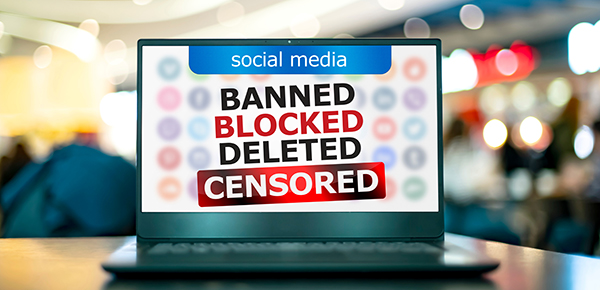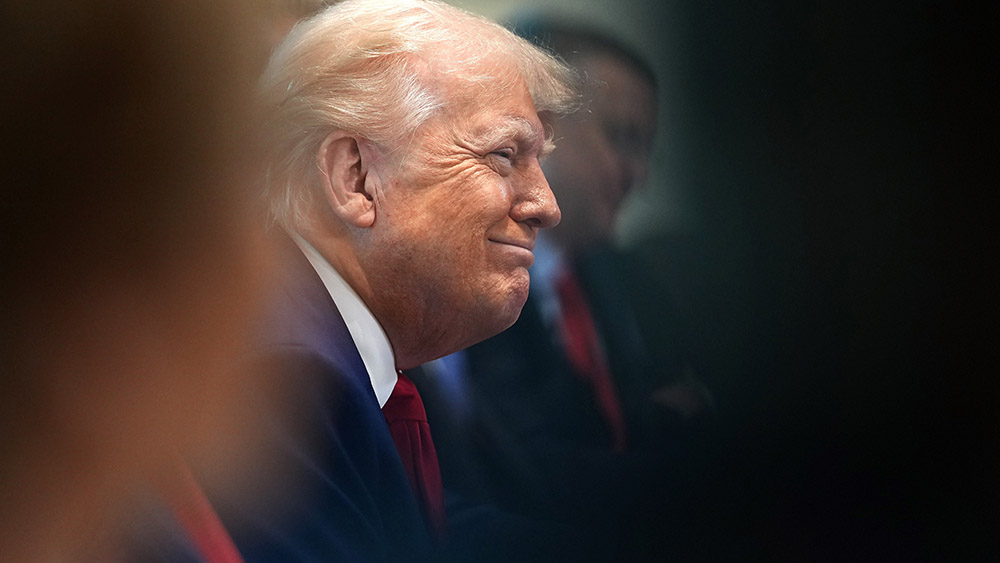 Parler
Parler Gab
Gab
- The Trump administration revoked visas for Brazilian Supreme Court Justice Alexandre de Moraes and his allies, accusing them of orchestrating a "political witch hunt" against former President Jair Bolsonaro. The sanctions also targeted top Brazilian prosecutors and federal police officials.
- U.S. Secretary of State Marco Rubio claimed Moraes' actions violated free speech rights, extending censorship beyond Brazil to target Americans. He emphasized the Trump administration's stance against foreign censorship affecting U.S. citizens.
- The move followed Bolsonaro's confinement under draconian measures (house arrest, ankle monitor, social media ban) ordered by Moraes, who alleged flight risk. Trump condemned the case as an "international disgrace" and threatened 50 percent tariffs on Brazilian imports if it continued.
- Bolsonaro, like Trump, alleges election fraud undermined his defeat. Rubio accused Moraes of suppressing free speech globally, while Brazilian prosecutors claim Bolsonaro incited insurrection. The clash reflects deepening global divides over judicial independence and electoral legitimacy.
- The visa revocations evoke Cold War-era interventions, drawing criticism for threatening Brazilian sovereignty and praise for resisting judicial overreach. Trump's tariff threats intertwine trade policy with Bolsonaro’s legal battles, exacerbating U.S.-Brazil tensions amid broader geopolitical struggles.
From election trials to trade war
Rubio's announcement came hours after Bolsonaro was placed under house arrest, fitted with an ankle monitor and barred from social media. Moraes defended these draconian measures, citing fears the former leader might flee abroad. "This trial is an international disgrace," Trump wrote on Truth Social, likening Bolsonaro's treatment to his own legal battles. He threatened a 50 percent tariff on Brazilian imports unless the case is dropped, framing it as retaliation for "censorship" extending to Americans. Bolsonaro, who denies coup allegations, called his prosecution "supreme humiliation" in an interview with Reuters. (Related: Trump Media, Rumble sue Brazilian judge over censorship of U.S. conservatives.) The dispute mirrors deepening global divides over election integrity and judicial independence. Bolsonaro, like Trump, claims fraud undermined his electoral defeat. Gonet told the STF that Bolsonaro "acted systematically ... to incite insurrection," while Rubio accused Moraes of suppressing free speech beyond Brazil’s borders. Historically, such clashes evoke Cold War-era interventions, where the U.S. frequently backed leaders facing perceived political persecution. Critics argue the visa revocations signal a return to heavy-handed diplomacy, risking Brasilia's sovereignty. Supporters, however, hail it as a stand against judicial overreach – citing parallels to Trump's own indictments. Trump's tariff threats complicate matters further, intertwining trade policy with Bolsonaro's fate. Brazil, a BRICS member, faces economic pressure as Trump warns of additional penalties for nations aligning with the bloc's "anti-American policies." As Bolsonaro fights his legal battles and faces a ban from running for public office until 2030, the Washington-Brasilia rift underscores a broader trend: Leaders challenging elections worldwide face mounting legal and political repercussions. Visit BigGovernment.news for more similar stories. Watch Alex Jones of InfoWars talking about STF Justice Alexandre de Moraes' legal battle with X owner Elon Musk in this clip. This video is from the InfoWars channel on Brighteon.com.More related stories:
Trump slams Brazil over social media censorship, slaps 50% tariff on imports. Pro-censorship Brazilian justice TRAMPLES on free speech and U.S. sovereignty. Brazil's supreme court orders SHUTDOWN of Elon Musk's X to silence speech they can't control. Sources include: InfoWars.com TheHill.com Newsweek.com Brighteon.comBRICS charts new economic course as U.S. escalates tariffs in shift of global power
By Willow Tohi // Share
American Academy of Pediatrics DECLARES WAR on parental rights, demands end to vaccine exemptions
By Lance D Johnson // Share
U.K.’s Online Safety Act sparks outcry after X restricts access to protest footage
By Laura Harris // Share
EU submits to 15% Trump tariffs in new U.S. trade deal
By Belle Carter // Share
BRICS; A new global order? – Battle of the giants – Letter from South Africa [07-26-25]
By News Editors // Share
British meteorology under fire: Met Office’s “junk” climate stations spark crisis of trust
By Willow Tohi // Share
Governments continue to obscure COVID-19 vaccine data amid rising concerns over excess deaths
By patricklewis // Share
Tech giant Microsoft backs EXTINCTION with its support of carbon capture programs
By ramontomeydw // Share
Germany to resume arms exports to Israel despite repeated ceasefire violations
By isabelle // Share










